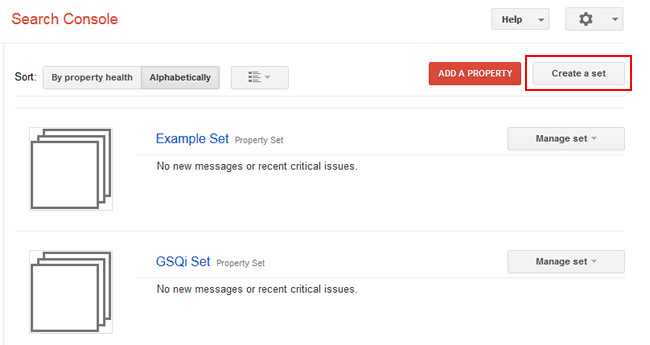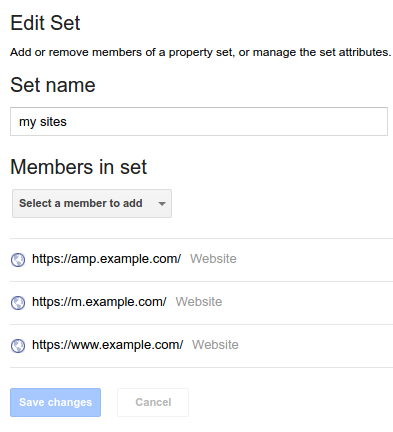Google Search Console 101: Property Sets and Aggregated Data Made Easy
Forward momentum happens when things are imperfect. Google is a well-known company of change and they're continually expanding and improving services including, Google Search Console (formerly Google Webmaster Tools as of May 2015). This post provides an introduction to Google Search Console "Property Sets" and shares some helpful updates on improved data visibility into multiple property versions.
An Intro to Google Search Console
Google Search Console provides some free tools that helps webmasters and site admins ensure Google itself is aware of (all) their web pages for a given domain. Search Console does a few other neat things too, for instance, you can check your indexing status and you can optimize your site's visibility for better positioning within their Search Engine Result Pages (SERPs). Search Console is a excellent source of analytical data too, but it comes with its limitations, like the fact that it could only report data on a property-by-property basis. A "property" is a website or app. Thanks to this extraordinary age of digital devices and web strategies like localization (geo-targeting), some properties have multiple versions of itself with many more to come. Historically, site administrators would add properties individually, as a separate version of the site. It can be a stodgy and tedious process when your property footprint spans a few city blocks (digitally speaking). Once all the properties have been identified, Google Search Console was unable to combine multiple sets of data (accounting for site variations) into a single report; it was quite an annoyance for admins. In May 2016 Google introduced a solution to the finger-breaking issue by releasing "Property Sets".What are Google Search Console "Property Sets"?
A Property Set gives webmasters the ability to connect numerous properties into manageable groups or, "sets". This new feature also removed some administrative burdens seen before; webmasters and admins now have the ability to view unified, analytical data across multiple properties from a single set. In fact, you can combine up to 200 properties into a one set -- that's pretty amazing compared to how things were before.How to Use Google Search Console Sets
Google has made creating a Property Set easy; here it is in 3 basic steps:- First, you need to be logged in to your Google Search Console Account. If you're new to Google Search Console, find help setting up your Search Console account here.
- Once you're logged into your Search Console account, find and click "Create a set" from the homepage.
 (image source)
(image source) - Site admins have the opportunity customize sets by adding name their new set and select all the associated properties they want it to contain. There are a few "basic rules" that apply to property sets such as, you must be a verified restricted user. You can find the rule here. One thing you'll want to take note of: your data won't appear instantly so don't worry if you're not seeing new data for the next few days, its normal.
 (image source)
(image source)
Limiting Features of Property Sets
- Restrictive Collaboration It's impossible to share a set with someone else, say your team members. Each person will need to create their own, separate version which is particularly limiting for individuals who are not a verified user for all of the properties within a set.
- Narrow Visibility Property Sets only covers search analytics. Site admins who want to h to view manual actions like unnatural links from your site to keyword stuffing issues (see a list of manual actions). To get that data, you'll need to circle back to an individual property view and dive into its data.



